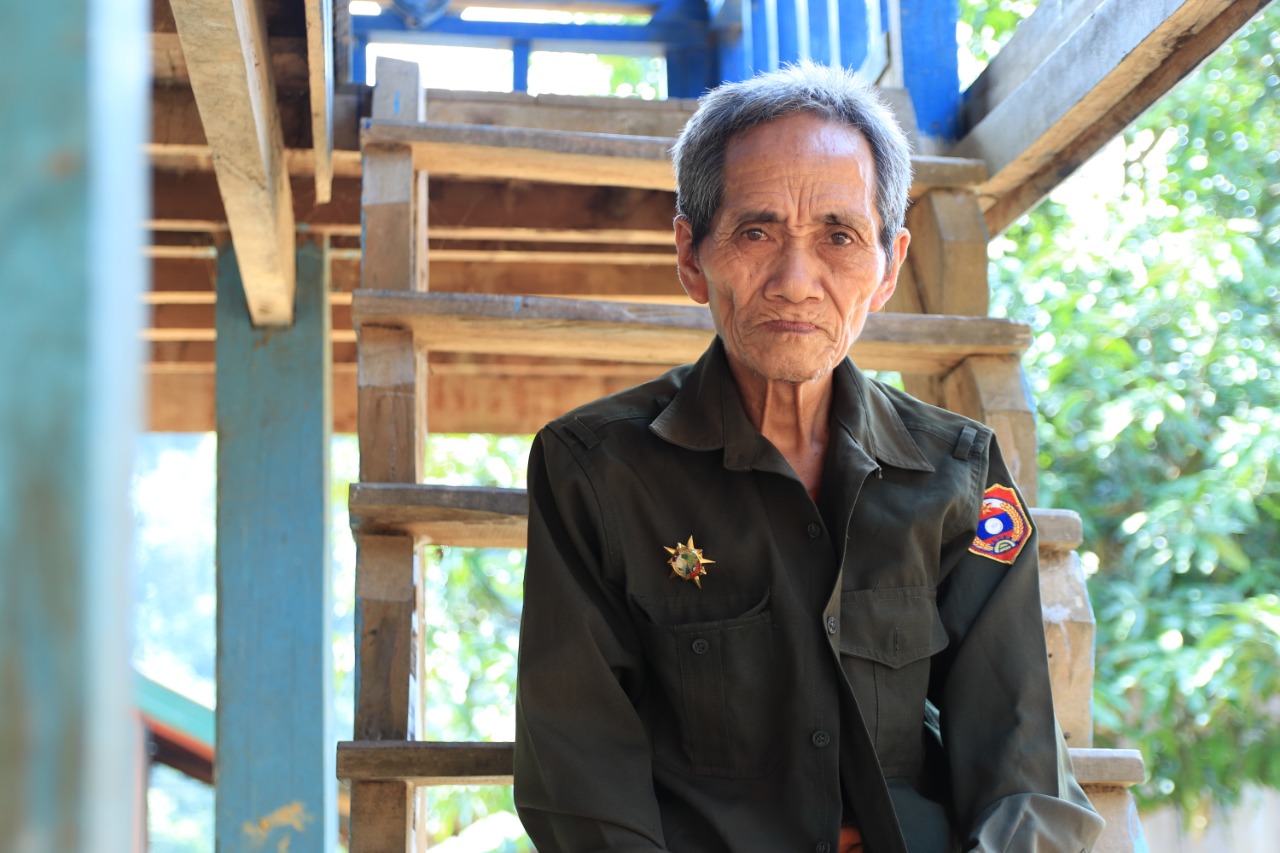
“The war affected us greatly. It caused unrest, interrupted development, and it became harder for people to earn money. Trade was uncomfortable because people feared fighting. The bombing destroyed rice fields and there is still unexploded ordnance (UXO) in the ground.”
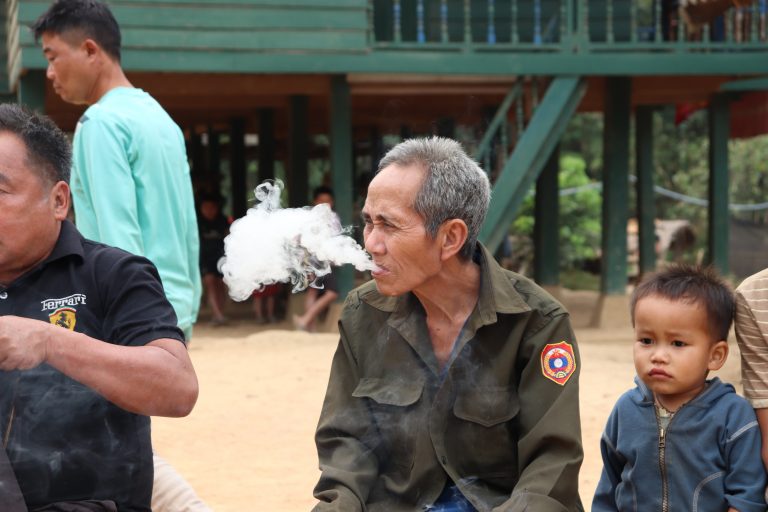
“I learned how to suppress emotion and shoot guns when I was 21 years old. I feared death and did not want to join the military, but it was mandatory since we lacked personnel and I wanted to fight for my country at the same time. Once training was over, I fought alongside an army of 500 Lao and Vietnamese soldiers against rebels and US soldiers at Pha Thi Mountain. The Americans had built an air command center at the top of the mountain. We first started at 6AM but could not win so we started again at the same hour the next day, this time with success. We took over Pha Thi and captured eight American soldiers. I then moved on to Phou Kong Ngua with an army of 200 and we arrested four rebels and two American soldiers.”
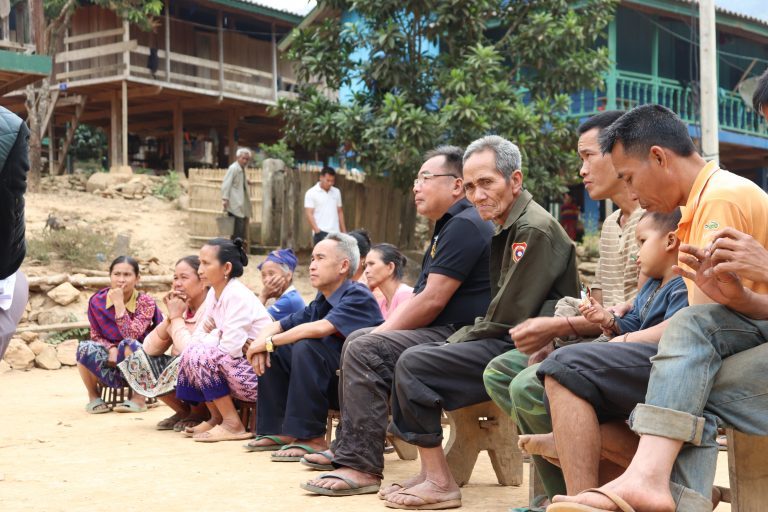
“I spent three years back in my home village of Phapeung with my wife before I was assigned to Phou Khao Kuay Mountain, where I transported weapons, food and clothing from Thathom district in Xieng Khouang Province. Living at the camp with 300 others was quite normal, for the Lao government provided basic essentials. But there, I have a bad memory that I will never forget. In the year 1968, while we were cooking, a fighter plane started shooting the base. I saw a bullet about five meters away from me. In a panic, I hid by the mountain with twelve others. Very luckily, I survived. But my camp was burned and some of my friends were wounded.”
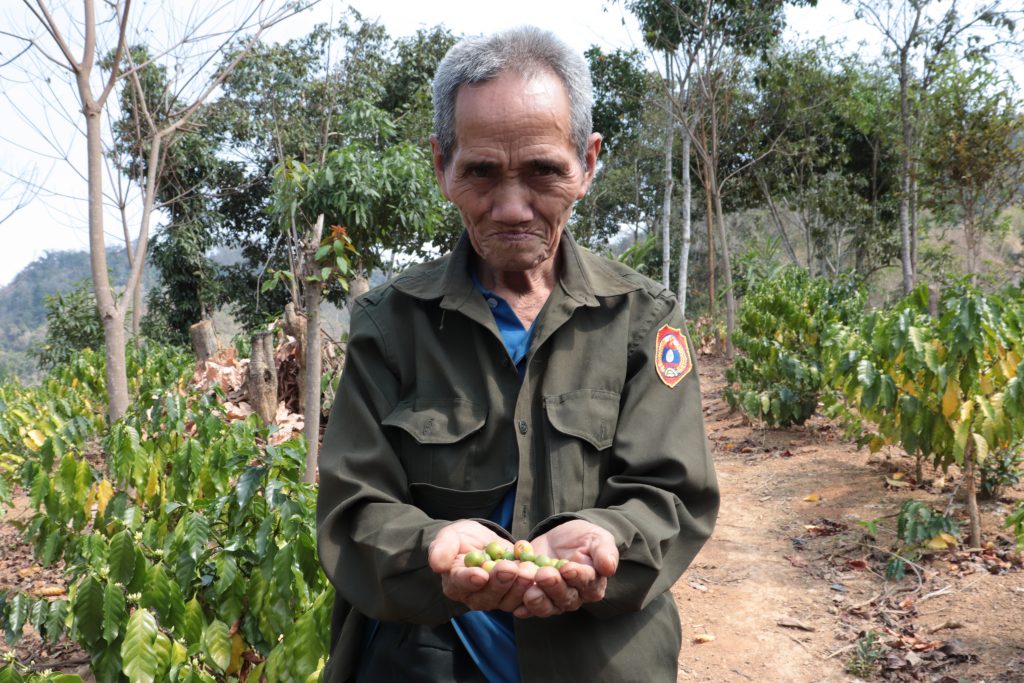
“Much has changed in my village since I was young. There are good houses here, one primary school, and a water supply system enough for the whole year. The Lao government is also helping to create a road into the village. However, I think the war affected us greatly. It caused unrest, interrupted development, and it became harder for people to earn money. Trade was uncomfortable because people feared fighting. The bombing destroyed rice fields and there is still unexploded ordnance (UXO) in the ground. In 2007, another villager, Mr. Phansavath, went about one kilometer away from the village to grow upland rice and he hit a bomb. He died at age forty.”
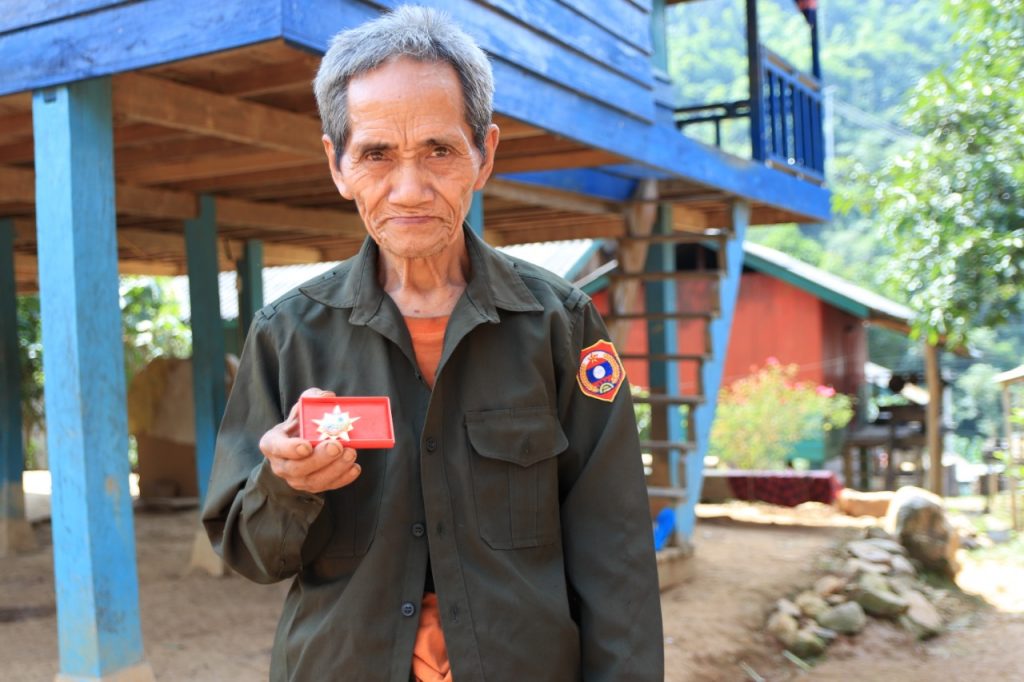
“When I returned from the war, I took up slash-and-burn agriculture, farmed livestock, and collected non-timber forest products such as galangal seed, cardamom and bamboo shoot. I am seventy years old now, but my family is still very poor. There is a lack of demand for our crop and it is not sustainable.”
“I have two grandchildren. My granddaughter is fifteen years old now and attends primary school in Nasikhamxai village, a 1.5 km walk away. She is in level four. My grandson is ten years old and is in level three at our hometown primary school. I hope that when I start harvesting coffee, I will sell and be able to send them to school in Xamtai City.”